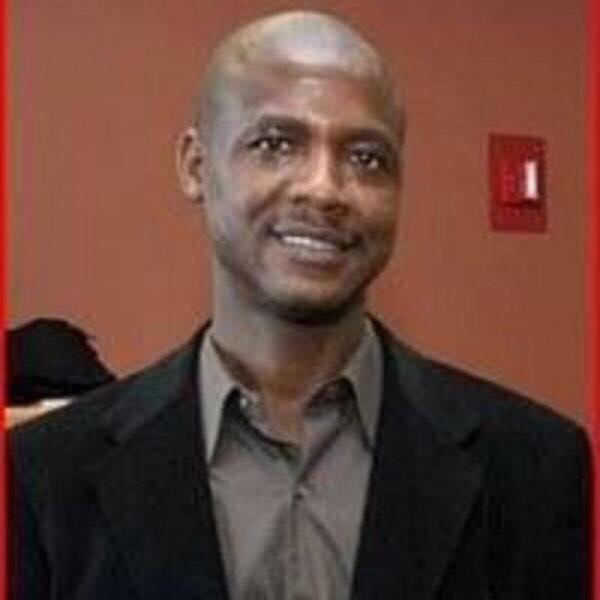Alagi Yorro Jallow
After many months of waiting for the other shoe to drop, Gambians finally heard President Barrow announce his readiness to fight for re-election. Silent majority of Gambians would have been relieved had he chosen to forego a second term; but many others were probably ecstatic about his declaration. There is nothing unusual about what he has done. It was long expected that he would find the allure of power quite irresistible, and the giddy delight of his supporters too entrancing, for him to be indifferent to a second term.
Has the coalition executive committee members given the honor of being the first to hear from him directly; but even if they were not so honored, some coalition partners have always been with him lock, stock, and barrel, and would have swallowed every form of indignity hurled at them given their naturally ingratiating disposition.
When he made the terse unofficial public announcement at political rallies, and on media interviews that his mission, vision, action plan for the Gambia cannot be realized in a short span of time (three years of the coalition, Memorandum of Understandings agreement (MoU), transition period) and afterwards Adama Barrow changed his mind that the 1997 constitution legally mandated him for five years- term. Barrow eloquently argued that the constitution, the supreme law of the land supersedes any coalition MOU agreement. There was a time when men were men. Their word was their honor and honor were “the” bond. I am sure apes won’t do what the man does today.
What is the furor about the change of mind by Adama? So, he changed his mind and broke his promise of honoring the bond of the MoU. If a candidate promises to do a term and then changes his mind, no laws have been broken; no legal infractions. Moral issues? Perhaps. But elections according to our Constitution and the electoral commission are guided by laws and not moral issues. When promises are broken, or people are misled, the bonds of trust are breached. “If a man makes a vow to the Lord or swears an oath to obligate himself by pledge, he must not break his words must do everything he has promised”.
However, coalition 2016 of opposition political parties that ended 22 years of entrenched dictatorship was a coalition of strange bedfellows and a one-chance special purpose vehicle to get rid of President Yahya Jammeh by all and any means possible.
Unfortunately, President Barrow has also been behaving as if he does not know or he does not care about the utter cluelessness of his team. We suspect he knows, but his arrogance is perhaps his hubris. He doesn’t care because he does not think that Gambians are important enough. He projects a vision, an image, and optics of power in contradistinction to the objectives of democratic governance.
Adama Barrow significantly rested his decision on the “clamor by Gambians”. That clamor was of course neither unanimous nor overwhelming, and it seemed even evenly divided between his supporters and opponents, but it was, to him, nonetheless a clamor still, and one worth honoring and not honoring the MoU, the coalition agreement to voted him into office.
And so, whether anchored on people’s clamor or rested on something more inspiring and noble, the president’s second term ambition has finally been kick-started. Given how easily his supporters are frenzied by his ambition and person, what perhaps really matters is that he has finally announced the momentous decision. Reports suggest that he received a standing ovation when he disclosed his intention to his close allies and many other politicians instantly jumped on the bandwagon. The ululation will doubtless continue, converts to his second term ambition will swell, and countless Gambians will fawn over him in record number in a manner close to a mafficking.
In 2016, the coalition had campaigned on these main promises, to wit, anti-corruption, security, institutional reforms, human rights, justice, repatriation, the economy and heal and reconcile a divided nation. His approach to the anti-corruption war has been desultory and generally ineffective. Like caviar to the general, it has tackled symptoms with elegant flourish more than initiate policy reforms and political and economic restructuring necessary to deoxygenate the cancer afflicting the body politic or create an institutional atmosphere that is durable, civilized and progressive.
Adama Barrow’s government has paid some attention to the economy, but he has never personally seemed capable of understanding its dynamics, let alone its modern manifestations. Though he continues to sell the narrative of an economy bankrupted by his predecessor, he has not fully and convincingly persuaded the public that the tailspin to which the economy was driven shortly after his assumption of office was not due in large part to his government’s naivety in economic issues. That economy, even after its emergence from recession, has not quite received the structured and nuanced shot in the arm needed to infuse it with the growth that takes a huge percentage of the people out of poverty. He will be required to propound and defend new concepts of the economy, beyond increased rice output. And, despite his inexperience-induced lethargy, he will also be required to vigorously champion new ways of doing things. Whether he will be able to convince the electorate that he is that man for 2021 remains to be seen.
President Barrow’s biggest protection lies in the legacy that he leaves behind. The people he listens to, those who claim to be his managers or handlers, those who speak for or claim to speak for him, have done incalculable damage to the minimum legacy that he can lay claim to – being the third President of the Gambia if he insists up to 2021 and his legacy not reconstructed he may have the big challenge of legitimacy to deal with if he gets another mandate.




